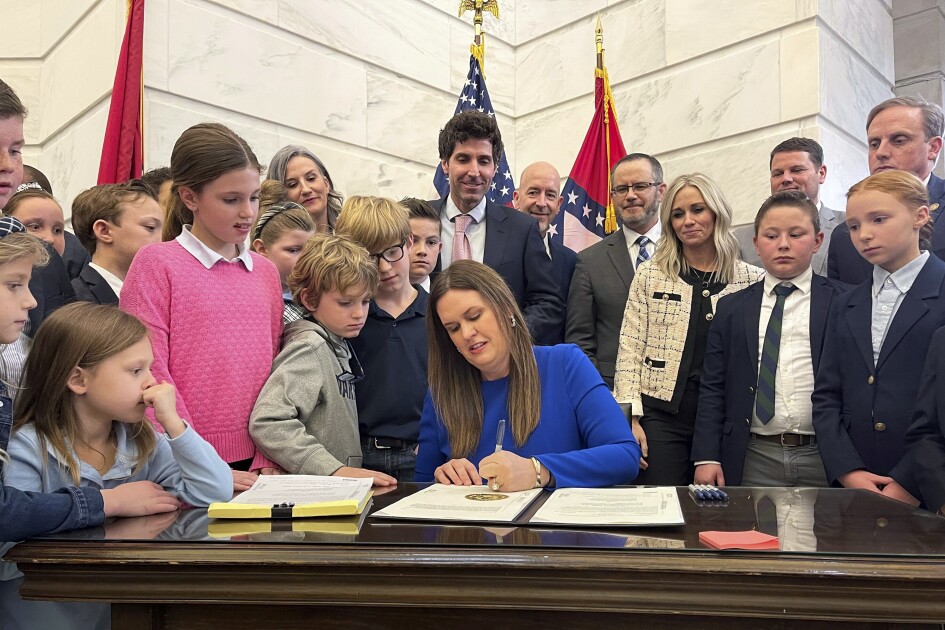A federal appeals court has ruled that Arkansas may enforce its law prohibiting teachers from “indoctrination” of students with critical race theory or other so-called “discriminatory” ideologies.
A three-judge panel of the U.S. Court of Appeals for the 8th Circuit, in St. Louis, unanimously vacated a federal district court’s preliminary injunction blocking the 2023 law, which is one of a handful nationwide that echoes anti-CRT rhetoric.
Some 17 other states, including Iowa and North Dakota (which like Arkansas are part of the 8th Circuit), have similar laws, executive orders or other measures. President Donald Trump in January issued an executive order aimed at barring “radical indoctrination” in K-12 schools, including any “discriminatory equity ideology.”
The Arkansas law requires state education officials to ensure schools are in compliance with federal civil rights laws by checking for curricular materials that conflict with the principle of equal protection under the law or encourage students to discriminate based on someone’s protected characteristics.
Teachers who violate the law could lose their teaching licenses. The law exempts teaching about “issues of the day” and allows discussions about the ideas and history of concepts described in the law. The state argued in court papers that the law “does not prohibit teaching about Critical Race Theory,” only “teaching that would indoctrinate students with [such] ideologies.”
Two high school teachers, two high school students, and the Arkansas chapter of the NAACP sued over the law. The teachers argued the law was so vague that it violated the 14th Amendment’s due-process clause, while the students argued that it violated their First Amendment free speech right to receive information.
A federal district judge decided against the teachers’ vagueness claim because the speech at issue was government speech. But the judge issued a preliminary injunction based on the students’ First Amendment claim, ruling that the law blocked information they had previously received. The judge relied in part on a 1982 8th Circuit decision, Pratt v. Independent School District No. 831, which held that “school boards do not have an absolute right to remove materials from the curriculum” if the removal “was intended to suppress the ideas expressed” in the removed materials. (That case involved a school district’s removal of a film version of the 1948 short story “The Lottery,” by Shirley Jackson.)
Arkansas Gov. Sarah Huckabee Sanders, a Republican who signed the measure into law as part of a larger education bill, celebrated the decision on X, calling it a “big win for common sense, education freedom—and parents who just want our schools to teach kids how to think, not what to think.”
No ‘supercharged right’ for students to receive information, court says
In its July 16 decision in Walls v. Oliva, the 8th Circuit panel vacated the preliminary injunction.
The court agreed there is a right of students to receive information, but “that right cannot be used to require the government to provide a message it no longer is willing to say” and “the government may change the message it promotes in response to the political process.”
“Students do not possess a supercharged right to receive information in public schools that alters these principles,” said the opinion by Judge L. Steven Grasz, a first-term Trump appointee. (The other panel members were appointed by Presidents George H.W. Bush and George W. Bush.)
“Just as ordinary citizens cannot require the government to express a certain viewpoint or maintain a prior message, students cannot oblige the government to maintain a particular curriculum or offer certain materials in that curriculum based on the free speech clause,” Grasz said.
The court said the 8th Circuit’s 1982 Pratt decision has been undermined by various U.S. Supreme Court rulings since then bolstering the government-speech doctrine, which holds that the government is permitted to engage in viewpoint discrimination when it speaks.
“Ultimately, if we followed the students’ approach, a government could not successfully defend its decision to change the curriculum by arguing that it was responding to the electorate and the political process,” Grasz said. “We decline the students’ invitation to make the school curriculum uniquely static and unaccountable.”

